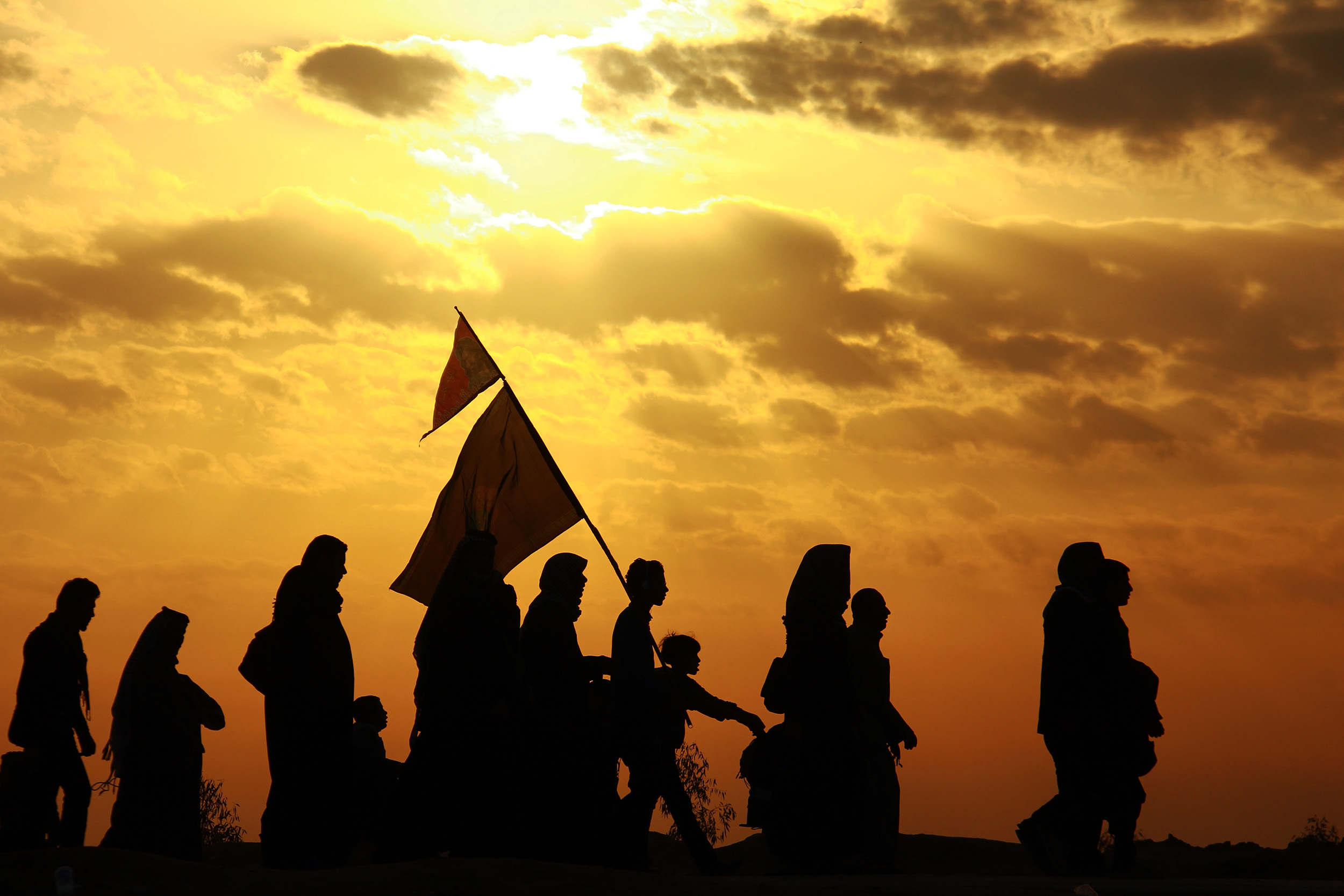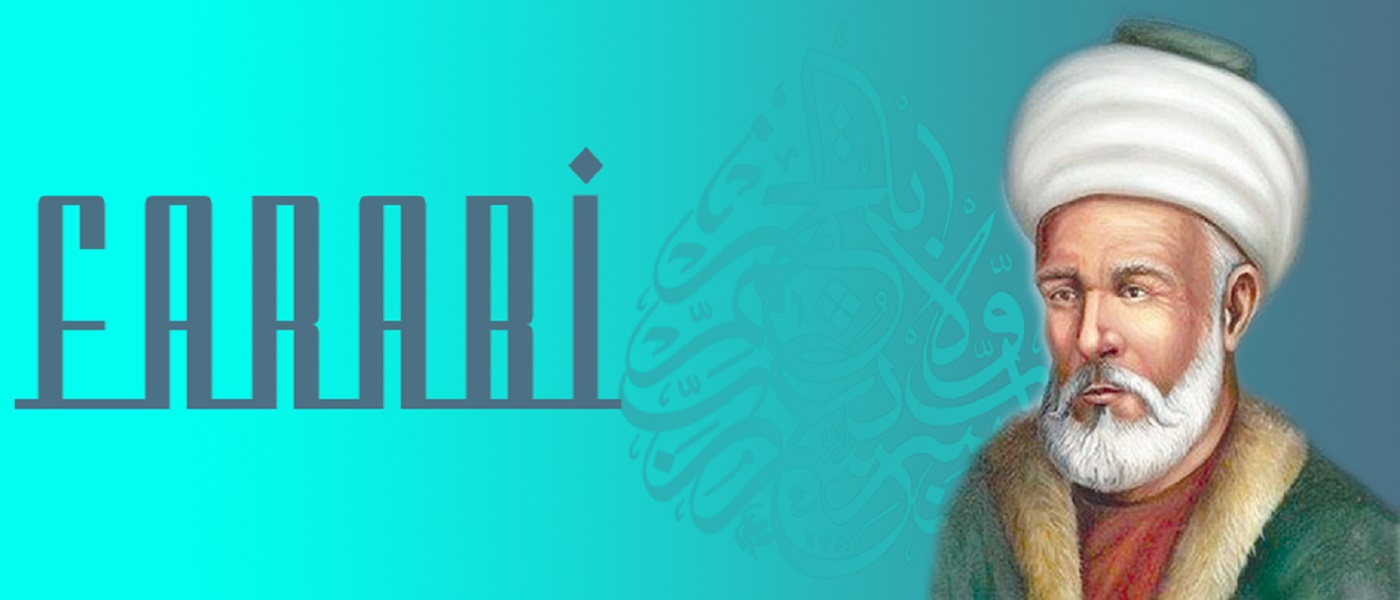

Narrations on Karbala and the pilgrimage of Imam Hussain (as) part2
Hadith 21: The Condition of Honor
Imam Sadiq (as) said: Whoever wants to be in the neighborhood of the Prophet (pbuh&HP) and next to Ali (AS) and Fatima (AS) should not leave the pilgrimage of Imam Hussain (AS).
Wasa'il al-Shi'ah, vol. 10, p. 331, p. 39
Hadith 22: Pilgrimage, Divine Duty
Imam Sadiq (as) said: If one of you observes the Ihram of Hajj for the entire of his life but does not visit Imam Hussain (as), he has left the right of the Messenger of Allah (PBUH&HP) because the right of Hussain (as) is a divine duty and obligatory for every Muslim.
Wasa'il al-Shi'ah, vol. 10, p. 333
Hadith 23: Karbala, the Kaaba of Perfection
Imam Sadiq (as) said: Whoever does not visit the grave of Imam Hussain (as) until he dies, his faith will be incomplete and his religion will be incomplete, and when he goes to heaven, he will be lower than the believers there.
Wasa'il al-Shi'ah, vol. 10, p. .335
Hadith 24: From Pilgrimage to Martyrdom
Imam Sadiq (as) said: Do not leave the pilgrimage of Imam Hussain (as) and recommend it to your friends and companions as well! May Allah prolong your life, increase your sustenance, and may Allah bless you alive and you will not die except as a martyr.
Wasa'il al-Shi'ah vol. 10, p. 335
Hadith 25: The Hadith of Love
It was narrated from Imam Sadiq (as) that he said: Whoever Allah wants good, will put the love of Hussain (AS) and his pilgrimage in his heart, and whoever Allah wants bad, will have him hate Hussain (AS) and anxious with his pilgrimage.
Wasa'il al-Shi'ah vol. 10, p. 388, Sea of Lights, vol. 98, p. 76
Hadith 26: A Sign of Being a Shiite
Imam Sadiq (as) said: Whoever does not visit the grave of Imam Hussain and dies as our Shiite and dies, is not our Shiite, and even if he is from the people of Paradise, he is the guest of the people of Paradise.
Kamel Al-Ziyarat, p. 193, Bihar Al-Anwar, vol. 98, p.4
Hadith 27: Ascension Platform
Imam Sadiq (as) said: Whoever visits the grave of Hussain (as) and has knowledge of the right of that Imam, Allah Almighty will register him in the highest rank.
Man la yahzurul Faqih, vol. 2, p.581
Hadith 28: The School of Knowledge
Imam Musa Kadhim (as) said: The least reward that is given to the pilgrim of Imam Hussain (as) on the banks of the Euphrates is that all his sins, before and after, are forgiven. Provided that he knows the right, honor and guardianship of that Imam.
Mustadrak al-Wasa'il, vol. 10, p. 236, quoting Kamil al-Ziyarat, p. 138
Hadith 29: Like the Pilgrimage of Allah
Imam Reza (as) said: Whoever visits the grave of Imam Hussain (as) on the banks of the Euphrates is like the one who has visited Allah.
Mustadrak al-Wasa'il, vol. 10, p. 250, quoting in full
Chapter Three: Ashura and Arbaeen
Hadith 30: Pilgrimage at Ashura
Imam Sadiq (as) said: Whoever visits Imam Hussain (as) on the day of Ashura, heaven will be obligatory for him.
Iqbal al-A'mal, p. 568
Hadith 31: Above Prosperity
Imam Sadiq (as) said: Whoever wakes up on the night of Ashura next to the shrine of Imam Hussain (as), on the Day of Judgment he will rush to Allah stained in his blood, like someone who was killed in Karbala next to Imam Hussain (as).
Wasaelu shiah, vol. 10, p.372
Hadith 32: Signs of Faith
Imam Hassan Askari (as) said: The signs of a believer are five:
1 Fifty prayers
2 Arbaeen pilgrimage
3 Ring in the right hand
4 Prostrating on the ground
5 Saying loudly the name of Allah, (Bismillah Rahman Rahim)
Wasaelu shia, vol. 10, p. 373, and also Al-Tahdhib, vol. 6, p. 52
Chapter Four: Torbat and Tasbih of Love
Hadith 33: His Porch
The Prophet of Islam (PBUH&HP) said: Know that the answer to prayer is under the dome of his shrine and healing is in his soil, and the Imams (as) are of his children.
Mustadrak al-Wasa'il, vol. 10, p.335
Hadith 34: Soil and Training
Imam Sadiq (as) said: Take your children with the soil of Hussain (as) (Karbala) because the soil of Karbala insures your children.
Wasaelu Shiah, vol. 10, p.410
Hadith 35: The Greatest Medicine
Imam Sadiq (as) said: The cure for any pain is in the soil (torbat) of Hussain (as) and it is the greatest medicine. Kamil Al-Ziyarat, p. 275 and Wasa'il al-Shi'ah, vol. 10, p. 410
Hadith 36: Torbat (soil of Karbala) and seven hijabs
Imam Sadiq (as) said: Prostration on the soil of Hussain (as) tears the seven veils.
Mesbah al-Muttahid, p. 511, and Bihar al-Anwar, vol. 98, p. 135
Hadith 37: Prostration on the Soil of Love
Imam Sadiq (as) did not prostrate on the ground except on the soil of Hussain (as) and he did this in violence for the sake of Allah.
Wasailu shiah vol. 3, p.608
Hadith 38: Rosary with the Soil of Karbala
Imam Sadiq (as) said: Prostration on the soil of Karbala can light up to the seventh earth, and whoever has a rosary from the soil of the shrine of Hussain (as) with him, is a truthful person, even if he says nothing.
Man la yahzurulFaqih vol 1 p 268
Hadith 39: Healing Soil
Imam Kadhim (as) while narrating a hadith announcing his death, said: do not take anything from the soil of my grave to seek blessings, because it is forbidden for us to eat any soil except the soil of my grandfather Hussain (as), Allah Almighty has healed only the soil of Karbala for the Shiites and our friends.
Jami ahadith, vol. 12, p.533
Hadith 40: One of the Four Needs
Imam Musa ibn Ja'far (as) said: Our needs are four things:
1. Prayer mat on which prayers are offered.
2. Rings on the finger
3. Toothbrush with which to brush teeth
4. A rosary from the shrine of Imam Hussain (as) Tahdhib al-Ahkam, vol. 6, p. 75
Share This Article

Was Prophet Muhammad (PBUH&HP) a Violent Man?
How high is the power of his religion that even 1400 years after his death, some people try to tarnish his personality? The religion of Islam brought and spread by Prophet Muhammad (PBUH&HP) is gaining more and more followers and lovers. This vast amount of conversion to Islam has negative consequences for the materialist and capitalist rulers in the world. By following Islam, people learn to stand for their rights and oppose the tyranny of oppressors. The rules of Islam question the rules made by the oppressor rulers in different societies.
Therefore, the increase in the number of people who embrace Islam and the Islamic lifestyle frightens those tyrant rulers, and they make plans to decay the status of Islam in different ways. One of the plans that they have been applying throughout the past decades was to introduce a violent personality of Prophet Muhammad (PBUH&HP). In this text, we will study the conduct of Prophet Muhammad (PBUH&HP) and the representation of his manners and behaviors in the Quran to review his kind and merciful character better.
Characteristics of a Preacher as Described by Allah Almighty
Sending messengers by Allah Almighty to people implies His deep care for them and His will to guide them toward prosperity. But His messengers were supposed to follow specific rulings in their invitation of people toward Him. Being kind and merciful to people is one of the characteristics that Allah Almighty ordered His messengers to observe.
When Allah was sending Prophet Moses and Aaron (PBUT) to Pharaoh, who claimed to be Allah, He told them that if they want their words to be heard, they should speak to him in a lenient manner: “Both of you go to Pharaoh, for he has indeed rebelled. Speak to him in a soft manner; maybe he will take admonition or fear.’” (20: 43-44)
Prophets were commanded to be patient with their people and never become angry at them. The only prophet mentioned in the Quran who became disappointed of his people and left them was Prophet Yunus (AS), who was punished by Allah for his impatience and disappointment: “And [remember] the Man of the Fish, when he left in a rage, thinking that We would not put him to hardship. Then he cried out in the darkness, ‘There is no god except You! You are immaculate! I have indeed been among the wrongdoers!’” (21: 87)
Therefore, when Allah Almighty’s criterion in choosing His messengers is mercifulness and kindness, how can He keep a violent prophet among His servants?
Prophet Muhammad (PBUH&HP) as Described in the Quran
Like any other prophets, Prophet Muhammad (PBUH&HP) had the characteristics of a chosen prophet. He was kind and merciful by the Mercy of his Lord as mentioned in the Quran: “It is by Allah’s mercy that you are gentle to them; had you been harsh and hardhearted, they would have surely scattered from around you...” (3: 159)
But the kindness and mercy of Prophet Muhammad (PBUH&HP) throughout his call toward Allah (SWT) come to a point where Allah Almighty tells him to be easier oh himself: “You are liable to imperil your life [out of distress] that they will not have faith.” (26: 3)
When Allah Almighty sees the unfriendly behavior of people toward Prophet Muhammad (PBUH&HP), He starts to point out and count Prophet’s kindly manners to people: “There has certainly come to you an apostle from among yourselves. Grievous to him is your distress; he has a deep concern for you and is most kind and merciful to the faithful.” (9:128)
Prophet Muhammad (PBUH&HP) was not only merciful to the people in Arabia, but he was sent to be a caring for all human beings in all times: “We did not send you but as a mercy to all the nations.” (21: 107)
All presentations of Prophet Muhammad (PBUH&HP) in the Quran are about his great kindness and his caring personality. Allah describes his manner and behavior as being the perfect example for humankind: “and indeed, you possess a great character.” (68: 4)
Was Prophet Muhammad (PBUH&HP) Kind to His Enemies?
Prophet Muhammad (PBUH&HP) was so kind to people that even if they harmed him, he did not reply to them violently. It is narrated from Ibn Mas’oud, who said: I saw people hit the prophet and made his face full of blood, but while he was rubbing the blood off his face, he prayed, “O Lord! Please forgive my people as they are ignorant.” [1] In the early years of his prophethood, people kept harming the Prophet (PBUH&HP), but instead of cursing them, the Prophet (PBUH&HP) kept praying for their guidance.
The Prophet (PBUH&HP) never violated the heads of Quraish for their aggravation and torture and kept asking Allah Almighty to forgive them, until Allah Almighty by His knowledge of their persistence in remaining infidels sent him the following verse: “It is the same for them whether you plead for forgiveness for them, or do not plead for forgiveness for them: Allah will never forgive them. Indeed Allah does not guide the transgressing lot.” (63: 6)
Allah Almighty then described the characteristics of Muslims in a way that at the same time that they should not oppress anyone, they shouldn’t undergo any oppression, and defined the real Muslim society with the following manners:
“Muhammad, the Apostle of Allah, and those who are with him are hard against the faithless and merciful amongst themselves. You see them bowing and prostrating [in worship], seeking Allah’s grace, and [His] pleasure...” (48: 20)
Like any other human being, despite his great and kind personality, Prophet Muhammad (PBUH&HP) had to react in different manners with different people. Therefore, if he had any serious encounter with people, it was not because of his violent attitude, but because of the correct reaction that any sane and smart man should have in facing different people.
References:
- Sahih Bukhari, Vol. 9, P. 20.
Read More

Al Farabi The Second Master
Had it not been for his coherent explanations on Aristotle’s Metaphysics, Avicenna would probably never have been able to understand it; he read Aristotle forty times, but it was just through the straightforward and comprehensive commentaries of Al Farabi that he finally realized Aristotle’s ideas on Metaphysics.
The great Muslim philosopher, logician, and cosmologist, Abu Nasr Muhammad ibn Muhammad Farabi, was born in 872 A.D. in Farab, Khurasan, to Iranian parents. He spent most of his life in Baghdad and from a very early youth started learning the teachings of Islam and the Holy Quran under the training of the best Islamic philosophers and scholars. He traveled to many countries, including Egypt and Syria. He died in 950 or 951 A.D. in Damascus, Syria.
In philosophy, he is considered to be the second in rank after Aristotle, and is called “the second teacher” and on some occasions “the second master” [1]. His wise and easy to understand explanations shed a clear light on the complex philosophy of Aristotle, to the point that many western philosophers owed their appreciation of “the first teacher”’s philosophy to Al-Farabi [2].
Moreover, he is the founder of Islamic philosophy. He genuinely believed in the existence of the first cause -God, Allah- and admitted the limits of human knowledge in understanding the nature of it [3].
In one of his most notable works “Al-Madina Al-Fadila” (The Virtuous City) which is basically about political philosophy, he argues that the favorable form of government is the one ruled by a prophet or Imam. Accordingly, the city of Medina when it was ruled by Prophet Muhammad (PBUH) was the ideal kind of society that would ultimately guide human beings to everlasting felicity both in this world and the world that is to come.
He also criticized those philosophers who do not utilize their knowledge for the benefit of their society. He compared the philosopher's role in society with a physician’s relation to the body; the body's health is affected by the 'balance of its humors just as the city is determined by the moral habits of its people. The philosopher's duty, he says, is to establish a ‘virtuous’ society by healing the souls of people, establishing justice, and guiding them towards 'true happiness' [4].
He was also a grandmaster of music; “He is said to have created musical compositions. To this day there are melodies in Anatolian music and rags in classical North Indian music attributed to him, sung and performed by masters of these musical genres”[5]. His famous book on music, Kitab al-musiqi al-Kabir ("The Great Book of Music"), is the study of the theory of Persian music and the philosophical principles of music, its cosmic qualities, and influence.
His other well-known book is called Kitab ihsa al-ulum ("On the Introduction of Knowledge"). It consists of eight parts, each dealing with one branch of science such as linguistics, logic, mathematics, astronomy, metaphysics, Islamic jurisprudence, Islamic science of dialectic and discourse, as well as politics[6].
Finally, Al-Farabi, one of the greatest Muslim philosophers, is a universal phenomenon whose innovative and sensible ideas marked a turning point in the history of philosophy. His philosophy was easy to understand and apply to real-life which is the essence of the sharia of Islam; a religion with rules that are highly compatible with human nature and if followed would bring satisfaction as well as peace.
References:
- Ian Richard Netton. “al-Farabi, Abu Nasr" .Islamic Philosophy from the Routledge Encyclopedia of Philosophy.
- F.W Zimmermann, Al-Farabi 's Commentary and Short Treatise on Aristotle 's De Interpretation, Oxford, 1981.
- Ian Richard Netton. Breaking with Athens: Alfarabi as Founder, Applications of Political Theory by Christopher A.Colmo".
- Charles Butterworth. Ethical and Political Philosophy in Adamson, P, and Taylor, R. The Cambridge Companion to Arabic Philosophy
- Hussein Nasr, Mehdi Aminrazavi. “An Anthology of Philosophy in Persia," Vol. 1: From Zoroaster to ‘Umar Khayyam”, I.B.
- Hamid Taleb Zadeh. Philosophy (Introduction to Islamic philosophy) the field of humanity, for pre-university students.
Read More

